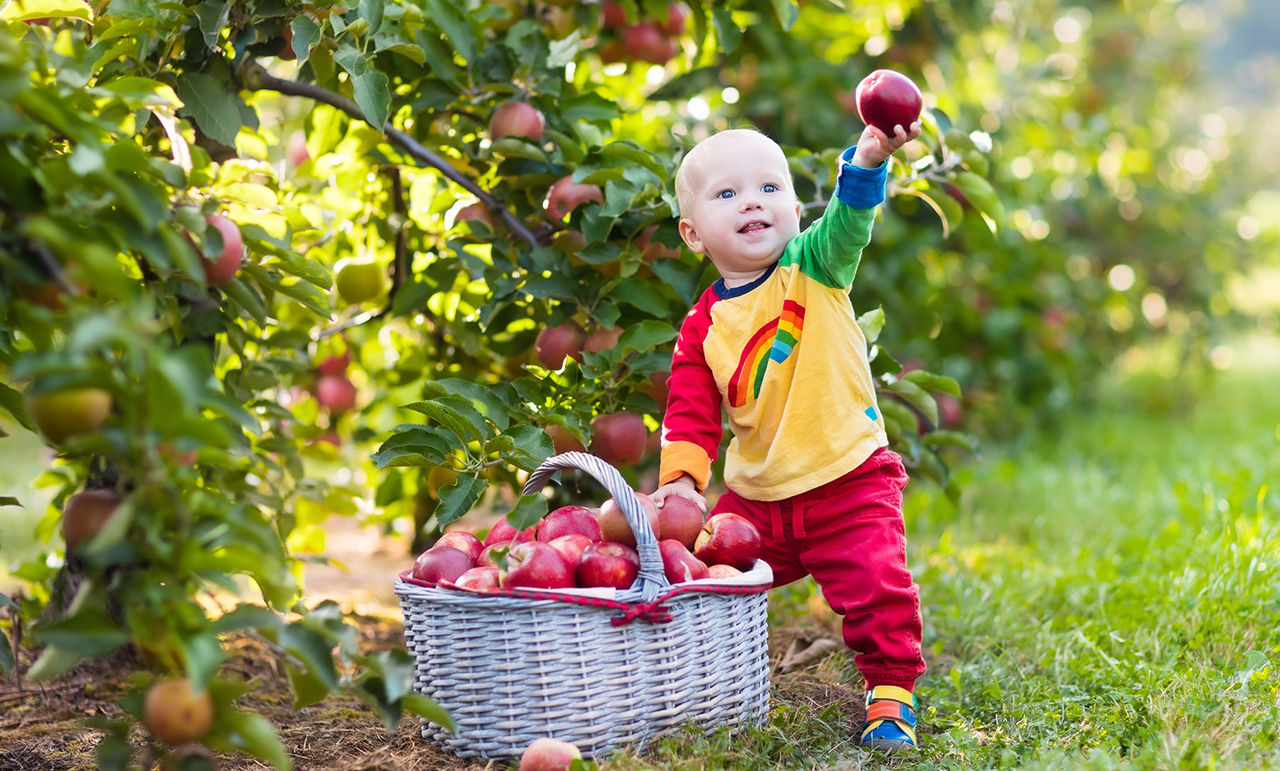- Vitamin D is an essential ingredient for a developing immune system, normal bones and muscle function
- Vitamin D is obtained through the direct action of sunlight on the skin and through limited foods
- A combination of nutrition and safe time in the sun is recommended for toddlers to get their share of vitamin D
How to ensure your toddler has enough vitamin D

Key points
When it comes to healthy kids, the right nutritional balance is essential. A big part of this balance is getting the right vitamins. Most of the essential vitamins your child needs for their development are naturally abundant in foods, except one: vitamin D. While a few foods do contain vitamin D, it’s primarily generated by the body in response to time in the sun.
But too much time in the sun is not safe for a young child’s sensitive skin so it can be difficult to ensure your child sees a sensible share of rays.
So how can you ensure your child is getting enough vitamin D, which is an essential ingredient for a developing immune system, normal bones and muscle function?
Here are a few ways to help your toddler strike the right vitamin D balance. But before we jump in, let’s find out more about the sunshine vitamin.
What is vitamin D, and what does it do?
Typically, 90% of vitamin D is obtained by the action of sunlight on the skin (90%). The remainder is obtained through food, particularly through dairy products, eggs and fish. It is almost impossible to achieve adequate vitamin D status through diet alone and therefore some sun exposure is important.
Vitamin D is a fat-soluble vitamin, which means it’s stored in fat tissue for later use if the body gets more than it needs.
Vitamin D is vital for your child’s healthy development. It helps make strong bones and healthy teeth as they grow and strengthen at a rapid rate.
Vitamin D also plays a role in maintaining the immune system, assists in normal muscle function and helps maintain healthy levels of calcium within the blood.
Low levels of vitamin D have been associated with higher prevalence of allergic disease. It’s important to ensure you are getting enough vitamin D in pregnancy to avoid your toddler having low vitamin D levels.
Vitamin D deficiency
Not getting enough vitamin D can increase your toddler’s risk of health issues. Significantly low levels of vitamin D for a prolonged period can result in rickets, a condition that leads to soft, poorly formed bones.
Skin pigmentation can be a barrier to not getting enough vitamin D. Simply, people who have skin with darker pigment need more time in the sun to generate the vitamin than those with fairer skin. So, keep this in mind if your toddler has dark skin and their background is Maori, Pacific, Aboriginal, Asian, African or Middle Eastern.
Getting sun, smartly
UVB rays, which trigger the synthesis of vitamin D, are blocked by glass, so opening the curtains to flood your home with light won’t do the trick. To get vitamin D, your child needs direct exposure to sunlight on the skin.
It’s best to spend time outdoors in the sunshine on a regular basis. Allow sunlight on the face, arms and hands of your little one for limited times during the day and never get sunburnt.
Stick to these short intervals and be sun smart: use sunscreen at the times of the day when the sun is at its strongest. Sunscreen will limit vitamin D intake, so it’s a little bit of a juggling act to strike the right balance between getting those rays and being safe. A little common sense and care will go a long way.
Foods rich in vitamin D
Vitamin D can be found in a limited amount of foods, including salmon, dairy products and eggs. But only oily fish contains significant amounts. The catch is it’s recommended that toddlers have no more than 2-3 servings of these kinds of fish per week due to the mercury content of some fish.
Keep an eye out for foods fortified with vitamin D, including some margarines and toddler milk drinks. To keep mealtimes interesting, here are some small meal and snack ideas to boost your toddler’s food intake of vitamin D:
- Salmon on toast triangles
- Scrambled eggs
- Breakfast cereal with toddler milk
- Tuna pasta bake
- Omelette with tomato and melted cheese
Speak to your healthcare professional if you’re worried your toddler is not getting enough vitamin D.
Related pages

Get in touch with our Careline experts
When your little one is unhappy or unwell you want reliable support from a trusted source. Our Careline team of nutritionists, dietitians and midwives specialise in infant and child health, offering free nutrition, feeding and product information.
Every feeding journey is unique
Not every parent can produce breast milk. No matter what choice you make, we will support your unique feeding journey.
We at Nutricia believe in providing the best nutrition for babies, which is why we recognise breast milk is uniquely superior for babies as it provides many benefits. It is important that mums have a healthy diet to support breastfeeding. A decision not to breastfeed, or partial bottle feed, may reduce breast milk supply making it difficult to reverse. The cost and social implications of using feeding methods should be considered. Always seek professional advice about feeding your baby. Ensure formula is used as directed as improper use can affect baby’s health.
REMEMBER: The information on this page is general only. If you have any concerns about your baby’s poo or questions about constipation or any other health concerns, please speak to a healthcare professional, like a Pharmacist, GP or Maternal Child Health Nurse.



